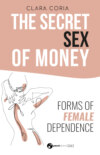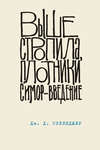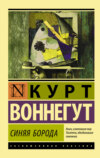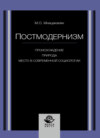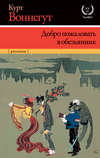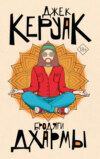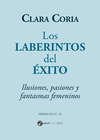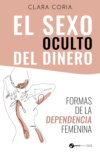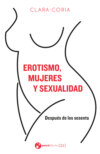Читать книгу: «The Secret Sex of Money»

THE SECRET SEX
OF
MONEY
Forms of female dependence
ANDROGYNOUS 21

Credits
© Clara Coria
First published in Argentina in 1986
Original title:
El sexo oculto del dinero -
Formas de la dependencia femenina
First published in English with the title:
The secret sex of money -
Forms of female dependence
© Pensódromo S.L., 2021
English translation copyright © Mark Lodge
Editor: Henry Odell - henry@pensodromo.com
Cover design: Cristina Martínez Balmaceda - Pensódromo
ISBN: 978-84-124690-0-4
This book is sold subject to the condition that it shall not, by way of trade or otherwise, be lent, re-sold, hired out or otherwise circulated without the publisher’s prior consent in any form of binding or cover other than that in which it is published and without a similar condition including this condition being impose on the subsequent purchaser.
Work published under the “Sur” Support Program to Translations of the Ministry of Foreign Affairs, International Trade and Worship of the Argentine Republic.
Obra editada en el marco del Programa “Sur” de Apoyo a las Traducciones del Ministerio de Relaciones Exteriores, Comercio Internacional y Culto de la República Argentina.
Table of Content
Cover
Title Page
Credits
Editor’s prologue
As a prologue
25 years later
Introduction
Origins
Referential framework
The contents
Some important clarifications
Bibliographic References
I. Women’s economic dependence
Economic dependence:
The phantasm of prostitution
Money and sex: a fundamental transgression (modesty, shame and guilt)
Bibliographic References
II. The benefits of economic dependence in women
The primary gain: anxiety versus freedom experienced as transgression
The secondary gains of economic dependence
Protection: a seductive siren’s call…
A suggestive triad: “small” money, restricted space and indiscriminate time
Bibliographic References
III. Love and money: maternal altruism versus manly speculation?
A female paradigm: the maternal ideal
“Mr Money is a mighty gentleman”
Professional fees or the money “that is charged”. A difficult dilemma to solve: bad mother or public woman?
Bibliographic References
IV. Money in a marital partnership
A partnership in which some people are more equal than others
“Big” money and “small” money
Money for dependence
Bibliographic References
V. A particular distribution of power: The kids are mine and the money is yours
The “queen” of the home
Are children, as instruments of power, equal to money?
The myth of the “hidden power”
Bibliographic References
VI. Men and the accumulation of money
Money, an indicator of masculinity?
“Time is money”… a white lie?
Bibliographic References
VII. Some considerations on money and its meaning in the context of psychological treatments
Do therapists have the same attitude towards the economic dependence of their male patients as they do towards their female patients?
Female (economic) dependence in psychotherapeutic treatments of women
Suggestions for a possible alternative for tackling women’s economic dependence
Bibliographic References
Further reading
About the author
Notes
Editor’s prologue
Thirty-five years have passed, indeed, and during this time, the evolution of society seems to have become increasingly bent on “money” as the leitmotiv for our existences and, along with it – despite the efforts in changing attitudes – its control over the relationships between people, both in the “public” and “private” realms, has been reinforced.
What leads a publisher to publish a book thirty-five years years after the date of its first publication, with approximately ten editions and reprints (in Spanish) since then, and to publish it in English for the first time?
We have decided to publish this book by Clara Coria because we believe that the main thrusts of her analysis are still amazingly pertinent. Her premises on the subject are still indispensable for all who are willing to rethink and critically analyze the role they play in the context of their family and society as a whole.
The dawn of the 21st century brought with it the loss of certainties, the decline of the great collective projects with the crisis of previous utopias (both for Left and the Right) and the birth of new ways of seeing the world. A focus geared towards the personal level, social and economic success, dominates current society, which is immersed in a deep crisis. In answer to this, different voices, from men and women, rise up to speak about the need to reclaim the essential values of the human being. Our prevailing culture has allowed for the emergence of a new model of man and woman that implies a break with the traditional model. The book by Clara Coria we present to you is, precisely, one of the parts contributing to the emergence of this new model.
These contents need to be read with an open mind, a sincere and self-critical attitude and a willingness to take up the difficult task of questioning oneself and shaking deep-rooted certainties in our way of life.
We are publishing this book as a part of a corpus we have decided to call Androgynous 21, a system of related published materials from which to promote the voices of men and women who advocate a greater balance between the feminine and the masculine in modern society.
We hope that both this book and its proposal interest you.
Henry Odell
As a prologue Love, money and power in a couple:
a gender-based perspective to learn
how to enjoy living together
The four key words in the title: love, money, power and couple, are, in themselves, exciting, worrying, opaque, challenging and revealing. These four nouns are the basis for the mystery of the lives of most people who have lived in the realm of Western Judeo-Christian culture and who have incorporated its principles, its ways of understanding life and, especially, the power model established between genders.
Exciting, because they pull the vital strings of exchanges between people. And all that is vital is also exciting. That is, it stimulates our greatest conscious and unconscious desires. It makes our hair stand on end, our muscles twitch, our pulse accelerate and our imagination soar. And we feel like Icarus, flying towards the sun.
Worrying, because in spite of the possible certainties some people believe they have, we are never sure of whether love, money, power and couple are what we believe they are or what we were taught they should be. Uncertainty looms at the most unexpected junctures of life, shaking the foundations we believed sustained our present and future projects. And uncertainty is worrying because, in our culture, it has been relegated to a secondary status, it has a bad reputation and it usually lacks the psychological space required to deal with it without fear. Fear of the unknown is emphasized whereas enthusiasm towards novelty and adventure are concealed.
Opaque because the apparently unambiguous and common concepts in which the words of this title are presented conceal, beneath their seemingly harmless appearance, infinite unspecified expectations, unspeakable ambitions and codes whose incompatibility is only discovered in practice. That is, when the moment comes to manage money, to take up the responsibilities of power, to share life as a couple attempting to harmonize the inevitable differences and, especially, when attempting to find and unravel the great mystery of love.
Love, money, power and couple are words that are difficult and, therefore, revealing. These concepts we “carry along” in our everyday lives, as we do with our personal history, cultural traditions or gender identity. They behave so “naturally” that they end up being obvious and, therefore, unnoticed by all. For instance: men and women tend to find it “natural” that emotional restraint is a feminine prerogative and that “protection” is a masculine obligation. In practical everyday life we can see that neither emotional restraint nor protection is universal and certainly not exclusive of either gender. Love, money, power and couple are not innocuous concepts, because the way in which we conceive them conditions our life and our environment irrevocably. It is important to keep in mind that these conditionings condition our future at all times. It is worth pointing out that, on this subject, it is often difficult to reveal even that which is not hidden, simply because the manner of understanding the concepts of couple, money, power and love have become naturalized. And sometimes, the hardest thing is to see what is before our very eyes because our outlook is limited by the prejudices we uphold disguised as “natural” certainties.
25 years later
The first edition of The Secret Sex of Money was published 25 years ago, and, since then, it has been edited and reprinted about 10 times, with this being the first English-language edition. Has the general outlook of the patriarchal model I analyzed back then changed significantly?
Even if, throughout the last decades, some women have attained the acquisition and possession of money, it still has a sexual gender, and this gender is still male. Men and women keep on perpetrating traditional concepts and methods in their interaction with money because, even though its distribution has changed somewhat, the implicit model of power it contains has not. Both men and women enter into conflict when they attempt to harmonize the old codes with new aspirations (of both genders), and they both seek strategies – which they have still not found – to attain a higher level of equality when living together.
Access to money by women has not modified the power model of patriarchal society. It is true that much has changed in the last 25 years concerning the attitudes of quite a few women to earn, manage and spend money. There have been great changes with a strong impact on female subjectivity which, therefore, also impacted male subjectivity. When it comes to most women, it is worth pointing out that the mere fact of gaining access to money did not imply a change in the power models that had been incorporated in their own subjectivity. They often assimilate these power models which have been practiced for centuries by males and end up imposing them on themselves with methods similar to the ones suffered by women for centuries. Concerning men, the masculine resistance to accept sharing important decisions concerning money, which is also frequent, has led to conflicts of such importance that they ended up affecting the very foundations of relationships, affecting, of course, love. Money does not kill love; rather, the power model wielded by those who share it does; the need to acquire the resource of power that is money, which both the female and male genders learned how to implement as a hierarchical model of domination.
Many of the changes referring to money are not far-reaching changes but, rather, cosmetic modifications that ease the conscience of men and women. In women, because their will to be autonomous tends to generate numerous internal conflicts within them. And in men, because they fear losing authority – as well as the privilege of making decisions – by sharing the power granted by money. Men and women have still not found a satisfactory way to make the transition from dependence to shared autonomy. Both are often quite disoriented in what concerns sharing money, but they often conceal this confusion with leopardist changes. Leopardism is the name given to the strategy of power that consists in allowing some superficial changes to perpetuate the system, as in the novel The Leopard, by Lampedusa, which shows Sicilian society at the times of the struggle led by Garibaldi, showing that ceding some superficial privileges allows the system as a whole to perpetuate itself. Thus, many men and women insist in stating that great changes have taken place due to the fact that women have learned how to earn it and men have accepted to share some decisions. Relevant changes will only really take place when men and women accept to review the power model they have incorporated and which they keep on validating, sometimes unconsciously. Many men refuse to challenge the model because they are unwilling to renounce the privileges granted by administering money, and many women also resist because they try to avoid the conflict caused by the clash between money-related practices and the feminine ideal they have absorbed due to the gender conditionings installed by patriarchal culture. And what’s more, men, fearing the loss of the privilege granted by the management of economic resources, tend not to collaborate with women to rethink a different, more equal and caring model.
Both meet with obstacles to generate a healthy change. The greatest obstacle in women is the difficulty in freeing themselves from the “maternal” model that lies at the base of the feminine ideal, whereas, in men, the obstacle is not being able to free themselves from the patriarchal model of hierarchy according to which they must always “have more”: more erections, more money, more wisdom, more authority, etc. in order not to run the risk of being regarded as “unmanly”. They are both trapped in the patriarchal power model based on hierarchy and the superiority of some over others. Thus, some women make the mistake of believing that attaining freedom is to “invert the situations of power” and subjugate men. And many men also make the mistake of thinking that losing privileges is falling into disgrace and losing virility. Men and women are not confronted by their differences – which enrich exchanges – but, rather, the power model they have incorporated. This is not a struggle between men and women; it is a struggle to perpetuate an authoritarian and hierarchical model in which both men and women are trapped.
A common error is to believe that the patriarchal model is exclusively masculine. It is not new for human beings to walk the paths of culture together and to become imbued with its traditions as a whole. Authoritarian and hierarchical cultures promote authoritarian and hierarchical people from both genders, even though each gender finds a different way of applying said hierarchical authoritarianism.
What I call patriarchy is a model of relationships between genders characterized by conceiving the differences between them in hierarchic terms. That is, we assume the existence of a natural hierarchy, with the males of the species at the top. This is a way of classifying human beings as superior or inferior. Within this model, equality cannot exist and, therefore, neither can solidarity. Both men and women have assimilated this model of power relationships, because we are all within a patriarchal culture. I have noticed that those men and women who dare to challenge the model are often better prepared to create relationships with a better quality of life. They both cease being confused and women no longer need to “invert the hierarchy” to feel free, and neither do men constantly need to reaffirm their manhood.
Finally, related to love and relationships, I want to insist on something as simple as it is obvious: that the surface is the consequence of the foundations it is based upon. In other words, that the way in which relationships and love develop is a necessary consequence of the model underlying the link. Both for men and women, loving the “significant other” from a patriarchal model is not the same as to do so from an equal model. It is not the same as taking up the social roles that are necessary for human development from a social imposition that implies that protection is exclusively masculine and that contention is exclusively feminine. It is not the same for the health and well-being of a couple for the women to be exclusively in charge with raising children and performing household chores whereas the man is allowed to enjoy a broad spectrum of relationships and domestic services. It is not the same as to accept the double standard, characteristic of patriarchy, which established centuries ago that there are women for enjoyment and women for breeding as natural. Just as it is not the same as men not knowing that female sexuality is multifaceted and that it does not exclusively rests on penetration. Men and women are trapped in these patriarchal impositions. Men often feel forced to submit themselves to a constant evaluation of their virility at the risk of being erased from the universe, and women suffer from a lack of satisfaction they sometimes attempt to conceal in order to avoid conflict with men. In sum, it is not the same to go through relationships and nurture love when the differences between genders promote privileges in some at the expense of others and that they are conceived in terms of hierarchy than in an equalitarian model that values differences and is enriched with them.
Independently from how each person understands and experiences love, it is important to keep in mind that the psychological well-being of a couple is highly conditioned by the power model installed by both. A grave mistake is to close one’s eyes and to avoid challenging the model that upholds the relationship. There is always a power model, and thus, to ignore it is a way of approving it and, therefore, perpetuating it.
It is necessary for men and women to move together, because, when we are separate, we are lost. It is necessary to review the patriarchal model of power because it is harmful and it traps women and men alike in crystallized roles and it plants the seed of discrimination and subsequent rebellion in the male and female subjectivities. It is necessary to redefine the concepts of love, money, power and relationships in the light of the changes that have taken place in humanity and with a power model that accepts equality. A model that is enriched with differences without said differences being conceived in terms of hierarchy. Men and women are neither better nor worse due to their differences. We are a part of the universe that needs all of its differences to maintain its life potential.
My proposal for us women and men to live together is to carry out the task of reviewing the patriarchal model and reconstructing another model that is not based on hierarchy. I know this is a difficult and constant task that requires determination and courage. I also know that few are willing to carry it out. An example of this, which I experienced myself, is that I coordinated a huge amount of consciousness-raising groups, but I never managed to convince professionals experienced in group tasks to train in the subject of the “sexual differentiation of money”, so that they could later coordinate their own consciousness-raising groups, both for women and men. The reason is simple: touching this subject implies highlighting the power models inherent in money and to become transgressors of a model that is currently a part of their own subjectivity. This task is probably a frightening one for most people.
The problem is not difference, but the hierarchy of difference.
Clara Coria
Speech at the VI Congress of the Argentine Mental Health Association about “Sex and power, clinical practice, culture and society”; Buenos Aires, Mayo 21st, 2011.

